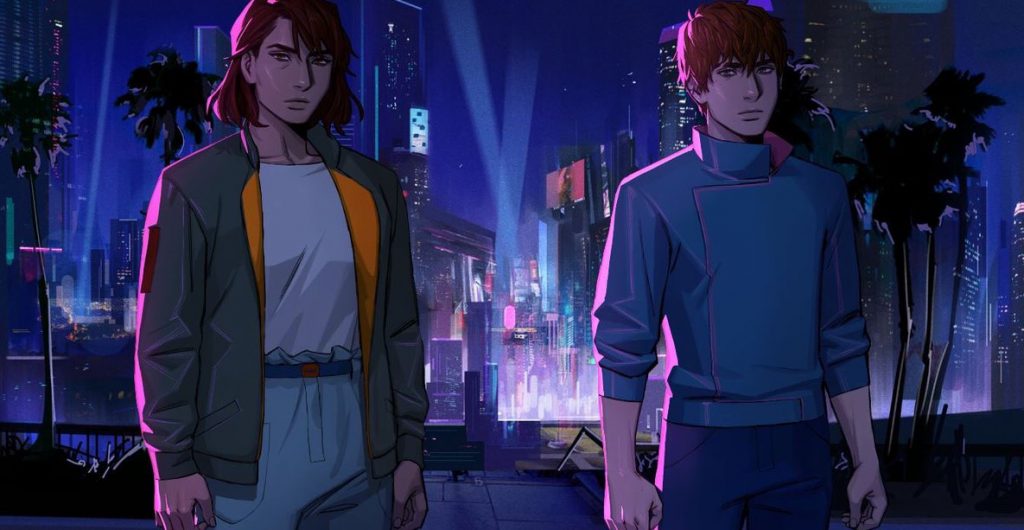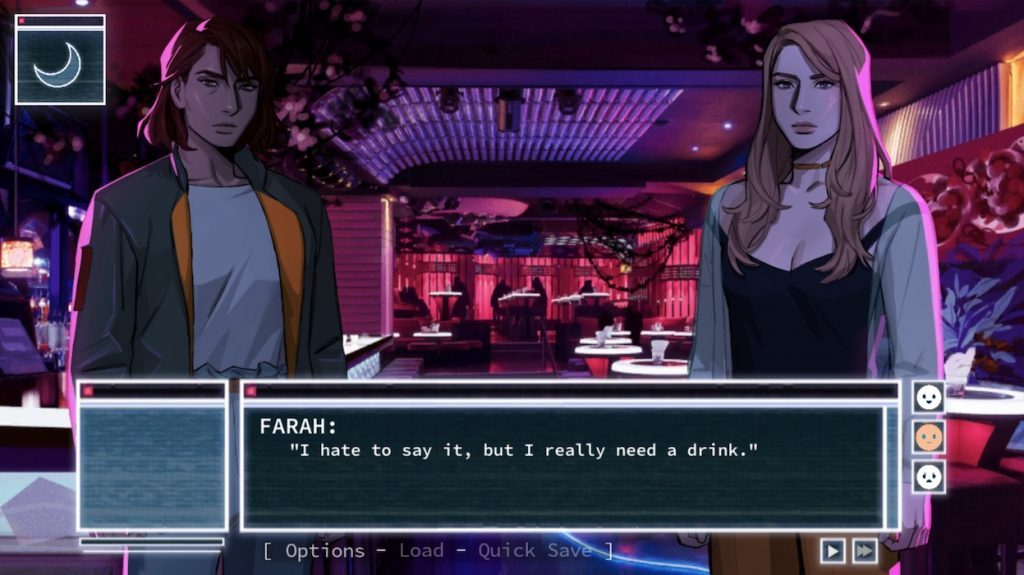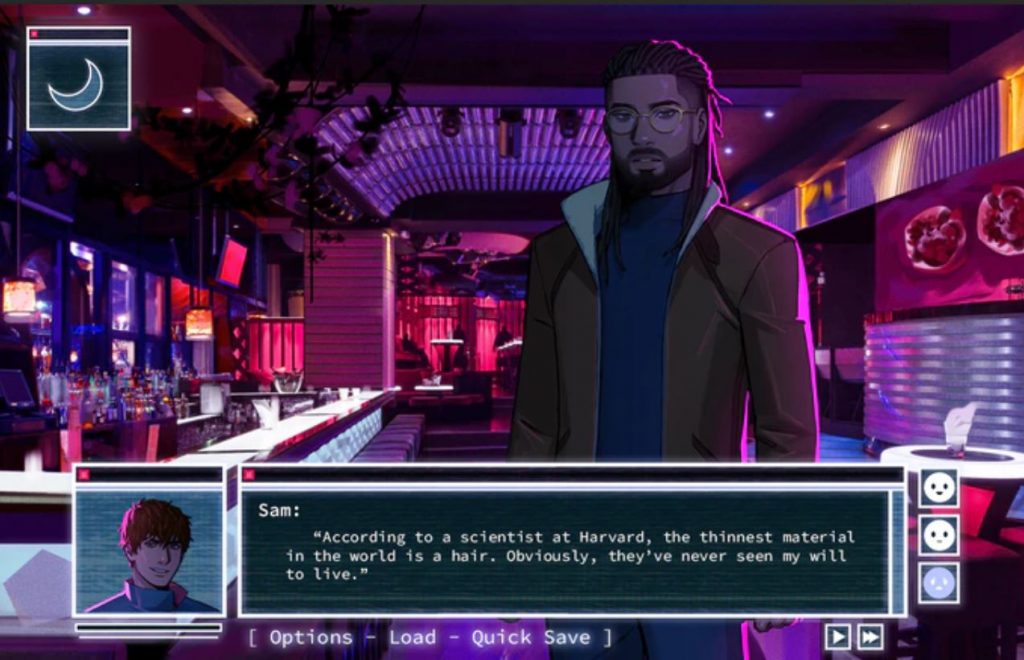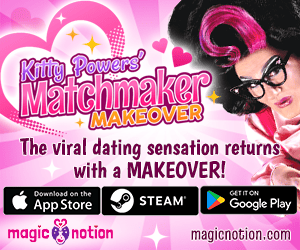
Love Shore is a Cyberpunk Story Where Queerness is the Default
What I played of Love Shore at PAX East ticked off several boxes. It was a game aware of the ways in which a cyberpunk setting can be used to heighten queer stories and characters, for one. Whether that’s aesthetically, thematically, or most importantly: in tangible, meaningful representation.
While I was talking to the developers at Perfect Garbage, the team said that while Love Shore isn’t necessarily a game “about” queerness and the real-world connotations of such, it’s one that instead makes it the default, allowing it to circumvent more mainstream stories about identity and delve deeper into characters relationships with themselves and each other.
Emmett Nahil, co-writer and co-producer, said this was an intentional decision on the team’s part, as they wanted to be able to discuss these issues without having to step over that additional hurdle of acceptance.
“The queerness is just built into the fabric of who the characters are, and that’s something we wanted to make really fluid and unquestioned in the world,” he said. “There’s enough bad shit going on to the characters that we don’t need to bring up in-universe homophobia and transphobia when we’re trying to tell an interesting genre story. It’s just built into how the characters act and behave, so their queerness is never questioned in the actual game. It’s just accepted.”

That’s not to say the game doesn’t seem to be dealing with issues of othering and self-acceptance. Sam and Farah, both of Love Shore’s protagonists, are S.Humans, cyborgs used to circumvent a fertility crisis. These people are created to look like children, then periodically “upgraded” to age alongside their parents. Being an S.Human comes with its own social stigma and a sense of dysphoria, which allows Love Shore to discuss these issues in a different lense than having to add real-world prejudice to a world that is, by design, the antithesis of that.
Some of this representation comes in the form of its dating sim mechanics, but co-writer and co-producer Son M. said they wanted to present characters who deviated from what is typical of even typical queer stories.
“Sam’s romance characters for example are Alyosha, a cis man, Conrad, a trans man, Vivienne, who is a woman who in the ‘R’ rating of our game, dominates him, and Aziz, who is his ex-boyfriend,” they said. “Versus Farah’s route, Maya, who’s a trans woman and also an S.Human, so we do like to talk a lot about identity and body dysphoria because we have these types of characters, Monti, who’s an older woman, because we’re also really into having hot, older women, because people tend to forget that women are attractive after 30, so we’re like ‘yo, she’s here.’ We also have Talia, who is also a vet that went to the military with Farah, then we have Jo who is non-binary and works at this kind of cool gun shop.”
Beyond its ability to convey a wide spectrum of identities and issues, Love Shore’s setting is just interesting in its own right. I chose to play as Sam, an angsty S.Human fresh out of prison, where people like him are kept in a kind of stasis, unable to move but still cognizant and able to spend all that time thinking about mistakes they made. Somewhat like sleep paralysis.

Now that he’s out and back in the real world, Sam is looking for honest work at a sex shop, which quickly goes awry after all his old contacts try to get him back into a life of crime, all culminating in finding an unconscious man in his place of work. Since he’s fresh out of prison and can’t be found with an injured man in his shop, Sam can call one of a few people, and who he reaches out to for help will determine where the story goes.
This is all happening in tandem with Farah’s story, which is adjacent, and might come together full circle by the end, but playing as her means seeing everything from a different perspective, one also influenced by choices made and companions trusted. Typically in games that have romantic routes I’m the type of person to pick a ‘canon’ choice and put the game down after I’ve done it, but Love Shore’s world is already drawing me in enough that I’m feeling more inclined to see every story through, rather than just the version of the story I like the most.
And even as I find the human side of Love Shore compelling, there are higher planes of existence in its world that I’ve still yet to see firsthand. Love Shore is a place bound to the wills of gods and capitalism and landlords in ways I still have yet to suss out. But there are enough layers here that I’m excited to peel back when it comes out in 2021.





